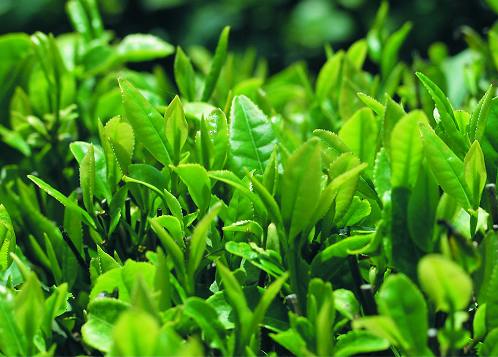 Affected by the weather, some of the most important tea producing countries owed money, which led to the continuous jump in global tea prices. Dry weather, less rain and frost affect the tea production in Kenya, the largest exporter of black tea. Insufficient rainfall has reduced production expectations for the other two major tea exporters, India and Sri Lanka.
Affected by the weather, some of the most important tea producing countries owed money, which led to the continuous jump in global tea prices. Dry weather, less rain and frost affect the tea production in Kenya, the largest exporter of black tea. Insufficient rainfall has reduced production expectations for the other two major tea exporters, India and Sri Lanka. Since the beginning of the year, the wholesale price of top grade black tea (BP1) has soared by 41%, exceeding the previous month's $4 per kilogram. This level had previously only appeared once in late 2009 when the price reached $5.45. Drinkers of Cairo Sweet Tea, London Milk Tea, and Los Angeles Ice Tea will feel the impact of rising tea prices. Analysts say tea drinkers in poorer countries such as Afghanistan and Pakistan may suffer the most severe impact because these places have lower retail profit margins than the West.
Kaison.Chang, the secretary general of the UN's FAO Intergovernmental Tea Group, said retailers are unlikely to pass on all the gains to consumers. He said: “It is expected that this will have some impact on retail prices, but in the retail sector, the competition between various beverages is quite fierce.†Unlike coffee, tea is not traded on futures exchanges but is held weekly in Mombasa, Kenya. At the auction.
Traders and analysts believe that tea prices may continue to climb this year. According to the Tea Board of Kenya, Kenya’s tea production was 158,000 tons in the first six months of this year, a decrease of 11.3% from 2011. Chang Kaisong stated that tea production in India and Sri Lanka may be reduced by 5% to 10% from last year. He said: "There are indications that the price of tea will rise to a very high level." He added that the decline in output will make the price of tea at a level of approximately $4.50 per kilogram.
Traders said that in recent months, the largest tea importing countries - Russia, the United Kingdom, Pakistan and the Middle East - have increased their stocks, which means that in the short term, prices may fall as buyers withdraw from the market. Dutch tea trader Van Rees said in its latest market report that tea prices are expected to “short break a few times and rise again in winterâ€.
However, in the traditional tea export countries - India and China, demand is heating up rapidly. Chang Kaisong said: "In the past five years or so, consumption levels in China and India have been rising rapidly, which has greatly promoted price increases."
Anti-Dust Smog Virus Kn95 Mask
Kn95 Half Face Mask,50pcs Kn95 Face Mask,Anti-Dust Smog Virus Kn95 Mask,Anti-Dust Smog Virus Kn95 Mask
Dongguan Keyutai Mask Co., Ltd. , https://www.maskkytai.com